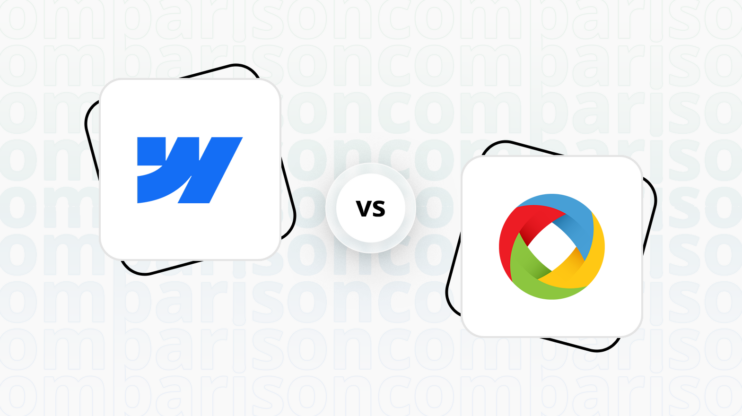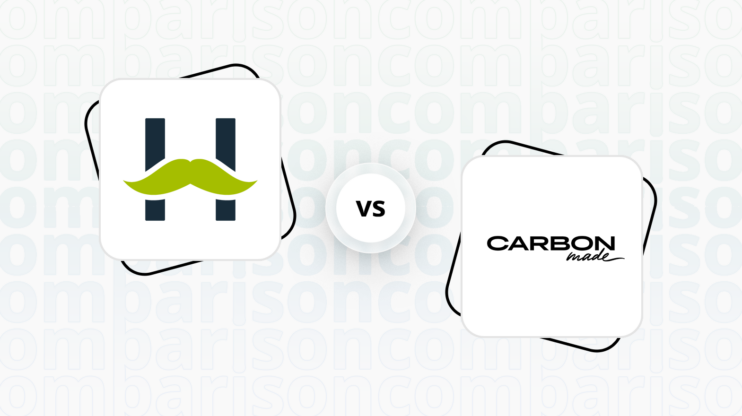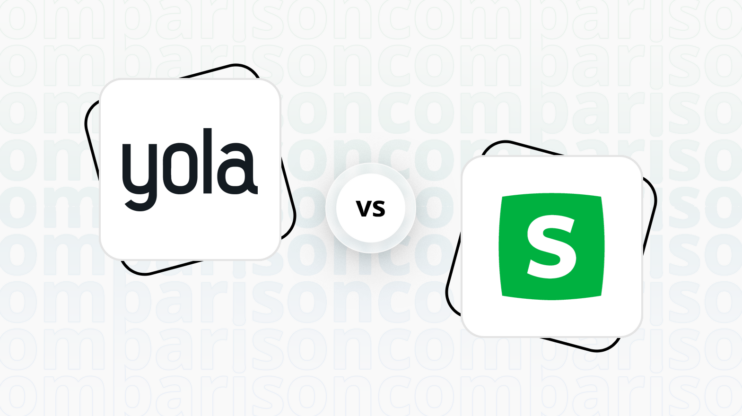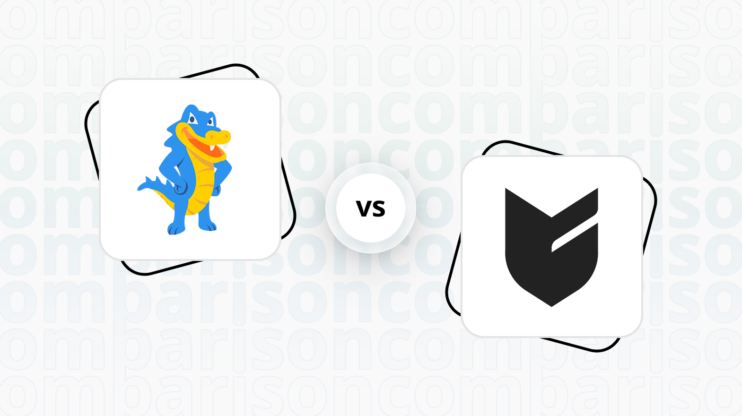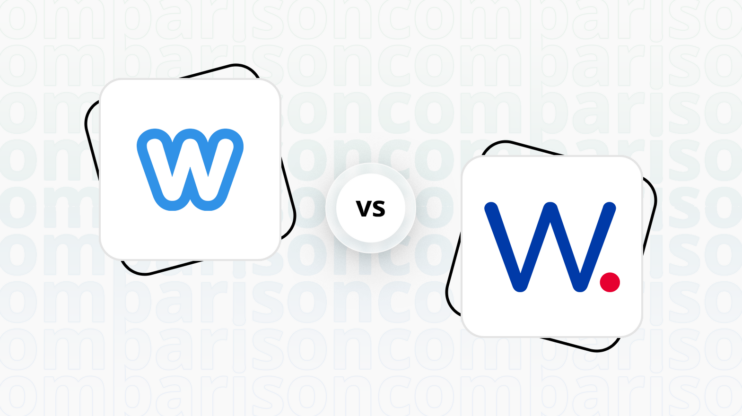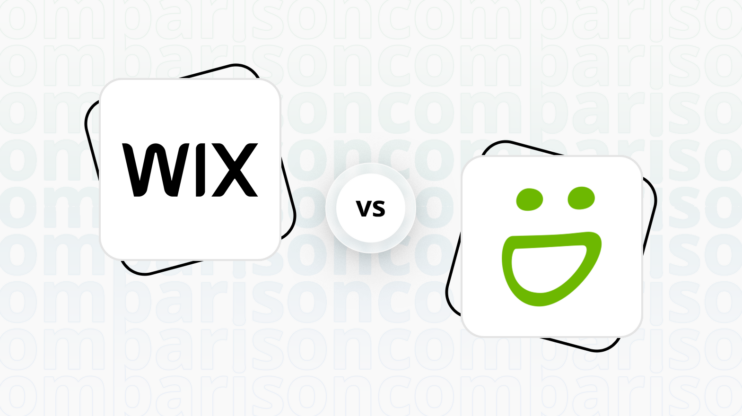Final verdict
Jimdo and Zoho Sites both offer user-friendly website building platforms, but they cater to slightly different needs and preferences.
-
Jimdo (Overall Grade: 7.2/10)
is ideal for beginners and small businesses looking for a straightforward, no-fuss website builder. It excels in ease of use, making it accessible for users with basic computer skills. Jimdo’s ecommerce features are built-in, making it a good choice for entrepreneurs starting their online ventures. However, it falls short in design flexibility and advanced customization compared to Zoho Sites. -
Zoho Sites (Overall Grade: 7.6/10)
offers a more comprehensive set of features, particularly in design functionalities and AI capabilities. It provides a larger collection of templates and greater customization flexibility, making it suitable for users who need more creative control. Zoho Sites also integrates seamlessly with other Zoho products, offering scalability and advanced features for growing businesses. However, it has a steeper learning curve compared to Jimdo.

|

|
|
|---|---|---|
|
Design functionalities & templates |
7.2 |
7.4 |
|
Ease of use |
8.0 |
7.0 |
|
Ecommerce |
7.0 |
7.4 |
|
Website Editors |
7.8 |
7.5 |
|
Product testing options |
6.4 |
8.8 |
|
Price |
7.5 |
8.6 |
|
Hosting quality |
6.7 |
8.0 |
|
Website speed optimization |
7.6 |
7.1 |
|
Plugins and integrations |
7.4 |
7.3 |
|
Marketing features |
7.2 |
7.6 |
|
Customer support |
6.8 |
8.3 |
|
Security |
8.3 |
8.1 |
|
AI capabilities |
6.0 |
7.5 |
|
User Management |
5.8 |
7.3 |
Best for ecommerce
 7.0
7.0
 7.4
7.4
Verdict
: Jimdo is ideal for small businesses and entrepreneurs due to its simplicity and ease of use, while Zoho Sites offers more flexibility and scalability, making it suitable for a wider range of business sizes.
-
Jimdo
: Jimdo provides built-in ecommerce features that are perfect for entrepreneurs and small businesses starting their online ventures. It offers product details and variations, inventory tracking, no transaction fees, discount codes, and email marketing. However, when comparing Jimdo vs Zoho Sites, Jimdo may lack some advanced features needed for larger-scale operations. -
Zoho Sites
: Zoho Sites integrates with Zoho Commerce for ecommerce functionality, offering robust product and inventory management, order management, payment processing, marketing and promotions, SEO, and analytics. This makes it a more flexible and scalable option for businesses of various sizes. However, it might be more complex for beginners compared to Jimdo.
Best for informational & business websites
 7.4
7.4
 7.9
7.9
Verdict
: Zoho Sites slightly outperforms Jimdo for informational and business websites, thanks to its extensive design functionalities and reliable hosting services.
-
Jimdo
: Jimdo is a user-friendly platform ideal for beginners and small businesses. It offers a range of templates and a straightforward interface, making it easy to create and manage websites. However, it may lack some advanced features and customization options that more experienced users might seek. Jimdo’s score: 7.4. -
Zoho Sites
: Zoho Sites provides a robust set of tools and templates, making it suitable for a variety of informational and business websites. Its integration with other Zoho applications and a higher degree of customization make it a versatile choice. The platform’s reliable hosting and comprehensive support further enhance its appeal. Zoho Sites’ score: 7.9.
Detailed comparison
Design functionalities & templates
Design FunctionalitiesRepresents how well each platform allows for creative design and customization of websites.Score Components:
- Template Variety (30%): Range and quality of design templates.
- Customization (30%): Flexibility and options for design alterations.
- User Interface (20%): Ease and intuitiveness of the design process.
- Responsiveness (10%): Adaptability to different devices and screen sizes.
- Innovation (10%): Unique design features and tools.
 7.2
7.2
 7.4
7.4
🏆
Winner: Zoho Sites.
Zoho Sites slightly edges out Jimdo in terms of design functionalities and templates, offering a larger collection of templates, more creative design possibilities, and greater customization flexibility.
Jimdo offers a diverse range of templates suitable for various industries and user preferences, with options to preview and select templates easily. The platform allows flexibility in changing templates for existing websites and also provides a “Blank Template” for custom designs, catering to both beginners and advanced users.


On the other hand, Zoho Sites offers a diverse collection of over 150 templates, thoughtfully categorized into industries like Restaurants, Architecture, Health, and more. Each template provides a pre-designed layout with responsive design for various screen sizes. Customization options include visual elements such as colors, fonts, and images, as well as the ability to modify layouts and content using the visual editor.
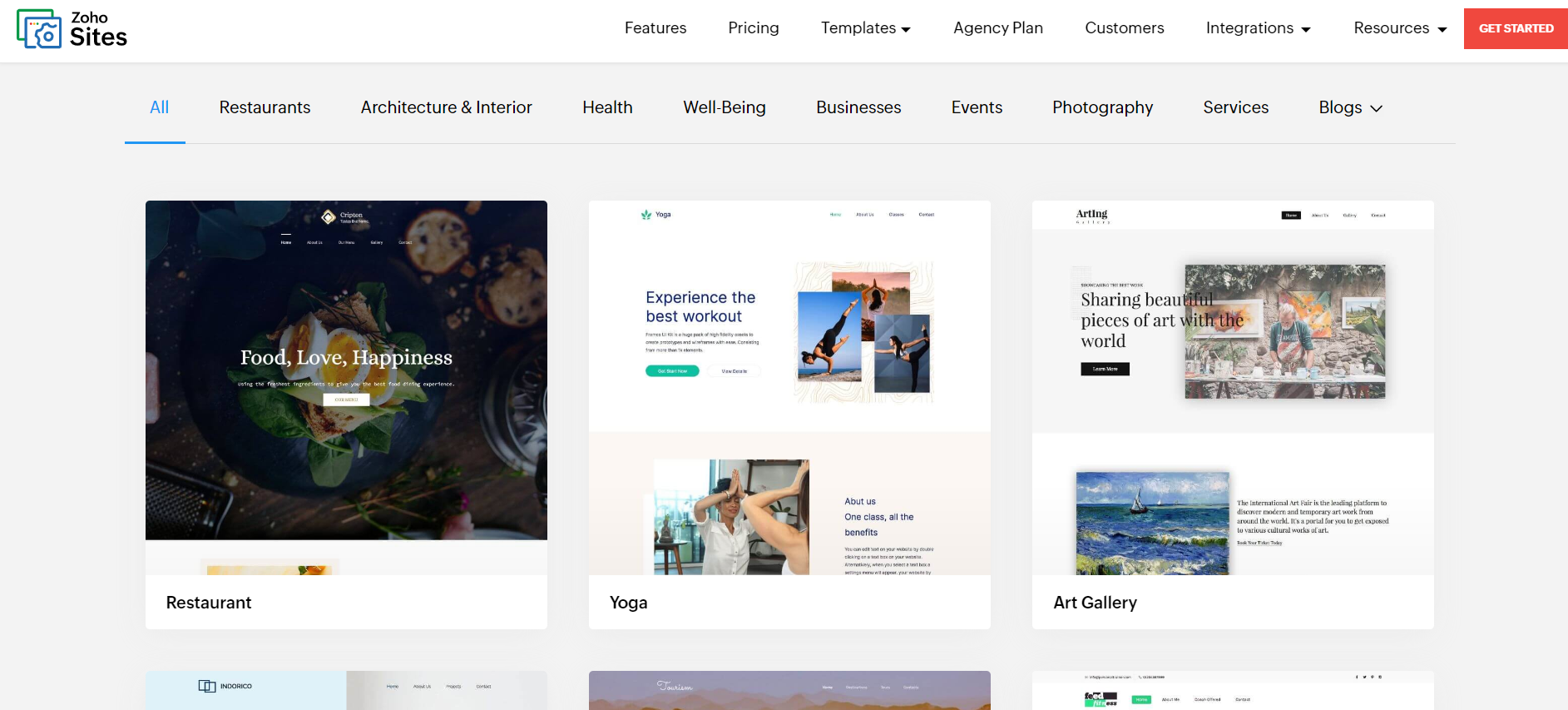

Get a head start on website creation with AI
Create a custom website tailored to your business needs 10X faster with 10Web AI Website Builder!
Ease of use
Ease of useReflects the platform’s overall user-friendliness.Score
Components:
- Learning curve (40%): Quickness and ease of getting started.
- Interface design (30%): Simplicity and intuitiveness of layout.
- User guidance (20%): Quality of tutorials and support.
- Flexibility (10%): Adaptability to various user skills.
 8.0
8.0
 7.0
7.0
🏆 Winner: Jimdo
. Scoring 8.0, Jimdo is praised for its user-friendly interface, particularly for beginners. Zoho Sites, with a score of 7.0, offers a clean interface and logical workflows but has a steeper learning curve, especially for users requiring advanced features. If ease of use is a priority, Jimdo is the clear winner in this category.
Learning Resources
🏆 Winner: Zoho Sites
. Both platforms offer solid learning resources, but Zoho Sites provides a wider range of high-quality resources, including a detailed beginner’s guide, comprehensive user guides, video tutorials, blogs, FAQs, community forums, and webinars. These resources cover everything from basic website creation to advanced customization.
For ecommerce
EcommerceMeasures the platform’s effectiveness in supporting online business activities.Score Components:
- Ecommerce themes and templates (20%): Variety and design of templates.
- Product management (25%): Ease of managing and organizing products.
- Payment options (25%): Variety and convenience of payment methods.
- Ecommerce features (20%): Features for managing an ecommerce store.
- Integration (10%): Compatibility with external e-commerce tools and services.
 7.0
7.0
 7.4
7.4
Jimdo and Zoho Sites both offer ecommerce capabilities, but their approaches differ. Jimdo provides built-in ecommerce features, making it a good choice for entrepreneurs and small businesses starting their online ventures. Zoho Sites, on the other hand, integrates with Zoho Commerce for ecommerce functionality, offering flexibility and scalability for businesses of various sizes.

|
|
|
|---|---|---|
|
Ecommerce themes and templates |
6.5 |
6.5 |
|
Product page customization |
6.8 |
7.0 |
|
Payment processing and commissions |
7.5 |
6.8 |
|
POS capabilities |
5.0 |
5.5 |
|
Payment gateways |
7.0 |
7.2 |
|
Product numbers |
6.0 |
6.0 |
|
Additional ecommerce features |
6.5 |
7.3 |
Jimdo ecommerce features:
- Product details and variations
- Inventory tracking
- No transaction fees
- Discount codes and promotions
- Email marketing
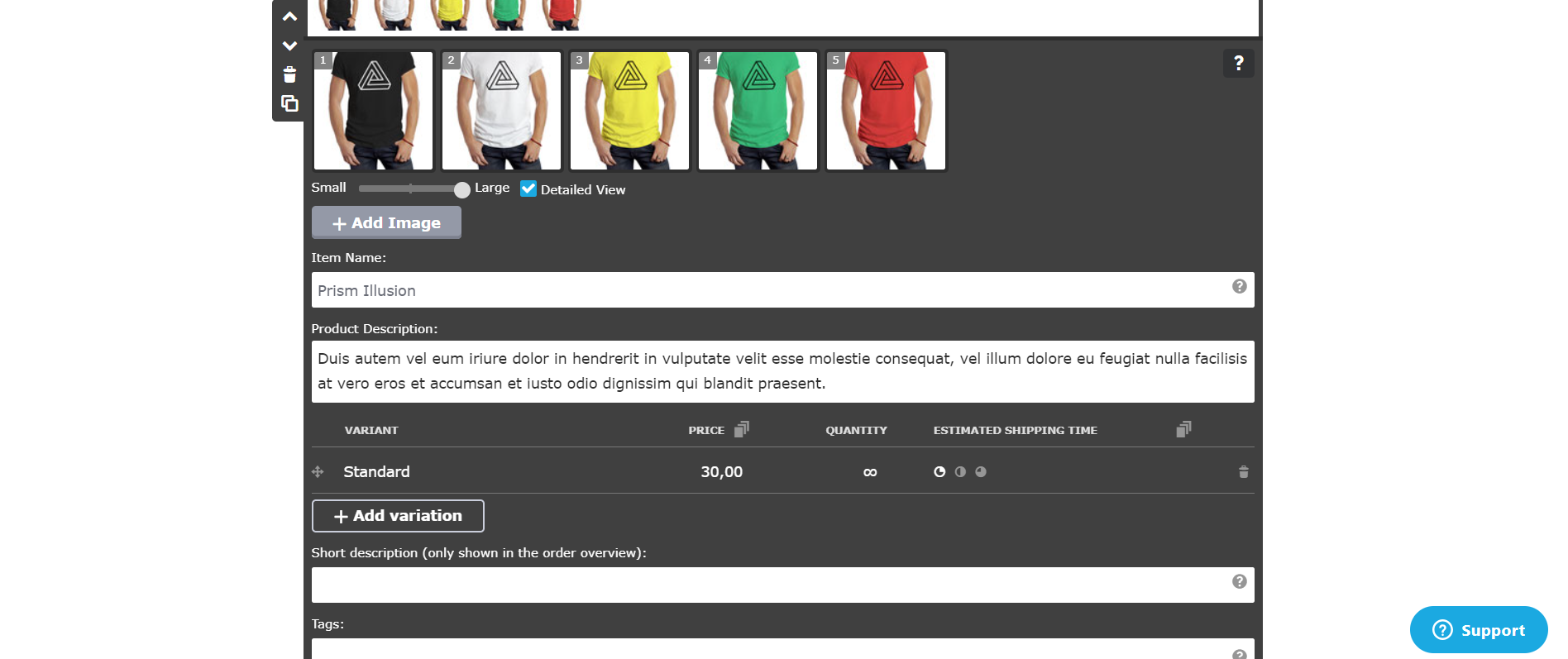
Zoho Sites ecommerce features:
- Product and Inventory management
- Order management
- Payment Processing
- Marketing and Promotions
- SEO and Analytics
- Security
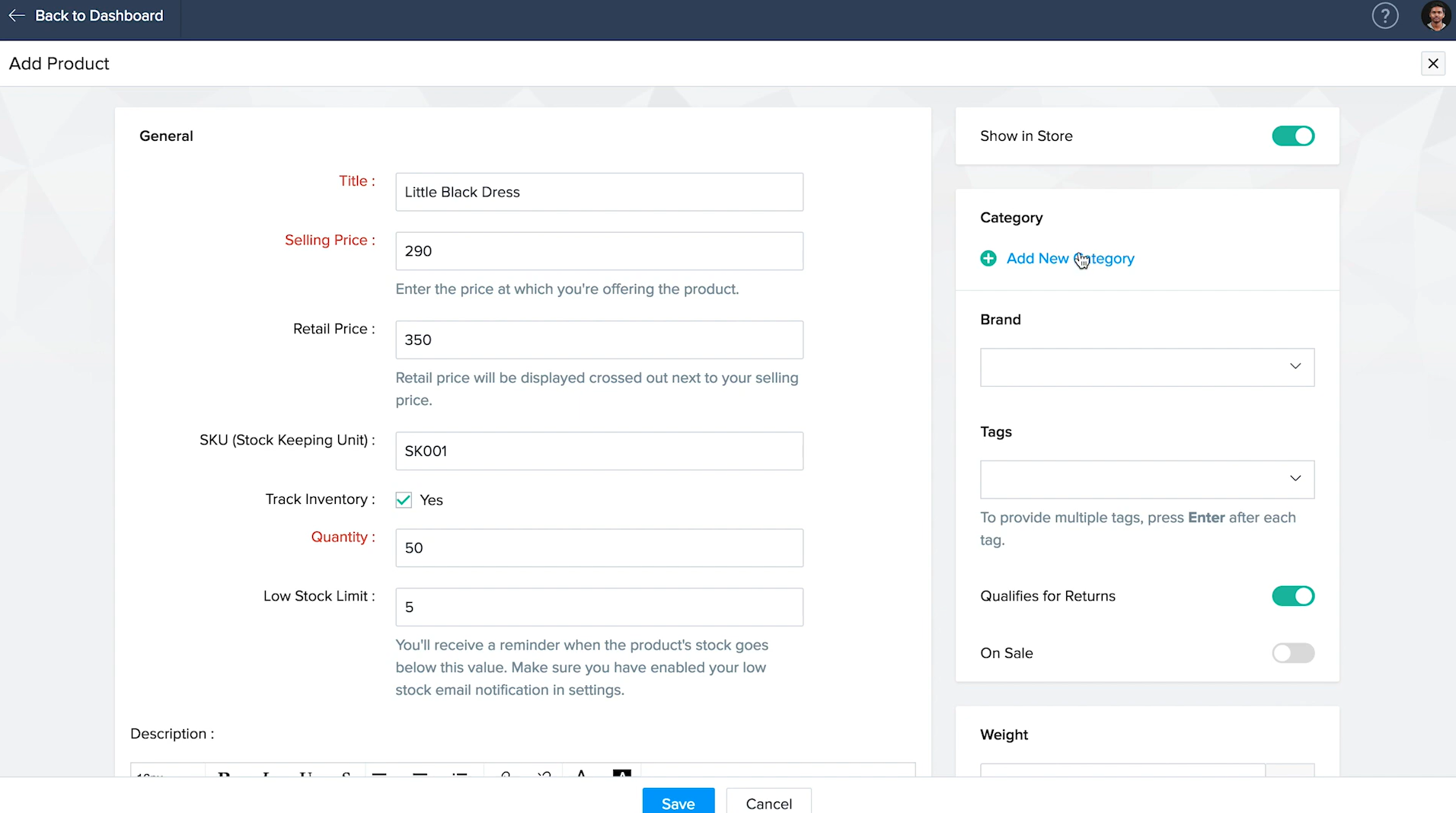
Ecommerce themes & templates
Jimdo’s ecommerce templates offer a diverse range of pre-designed themes, ensuring a mobile-friendly and smooth shopping experience. The drag-and-drop interface allows for easy customization of colors, fonts, and layouts, while templates focus on showcasing products with dedicated sections for images, descriptions, and clear calls to action.
On the other hand, Zoho Sites offers a range of eCommerce website templates and themes designed to cater to various industries and business needs. These templates are customizable, allowing businesses to tailor their online stores to their brand and product offerings. Zoho Commerce, in particular, provides beautiful and highly customizable eCommerce store themes, aiming to enhance the online shopping experience.
Product page customization
Customizing a product page on Jimdo involves using its user-friendly interface to personalize various elements. You can edit text, add images, adjust layouts, and modify design elements like colors and fonts to showcase your products effectively.
Zoho offers extensive product page customization options, allowing users to tailor the display of their products. This includes features like image galleries, sliders, and video integration, enabling businesses to present their products in a visually appealing manner. Additionally, Zoho facilitates the configuration of product variants like size and color options, as well as efficient inventory management directly from the product pages.
Payment processing
Jimdo facilitates payment processing through various popular gateways like PayPal, Stripe, Mollie, and more, depending on your location and plan. While Jimdo doesn’t impose transaction fees, individual payment gateways may have their own charges, typically ranging from 2% to 3% of the transaction amount plus a fixed fee.
Zoho Sites, in conjunction with Zoho Commerce, offers robust payment processing capabilities and supports integration with multiple payment gateways like PayPal, Stripe, and Square, facilitating secure online transactions. While direct POS system integration and commission management might require leveraging additional Zoho tools or custom solutions, the Zoho ecosystem provides a comprehensive suite for businesses to manage both online and in-store sales efficiently. This integration ensures flexibility and security for businesses aiming to provide a seamless shopping experience across multiple channels.
Website Editors
Website EditorsEvaluates the platforms’ website building and editing capabilities.Score Components:
- Customization tools (40%): Range and power of editing features.
- Editor usability (30%): User experience within the editor.
- Design flexibility (20%): Freedom in layout and design changes.
- Update and maintenance ease (10%): Simplicity of updating and maintaining the site.
 7.8
7.8
 7.5
7.5
🏆
Winner: Jimdo
. Jimdo, with a score of 7.8, offers two main modes: Jimdo Dolphin and Jimdo Creator. Dolphin, an AI-driven tool, is ideal for beginners and creates websites based on user responses to a series of questions, streamlining the web design process. On the other hand, Jimdo Creator provides a more traditional website building experience with greater customization options, including a drag-and-drop editor and HTML widgets, catering to users seeking more control over their site’s design.
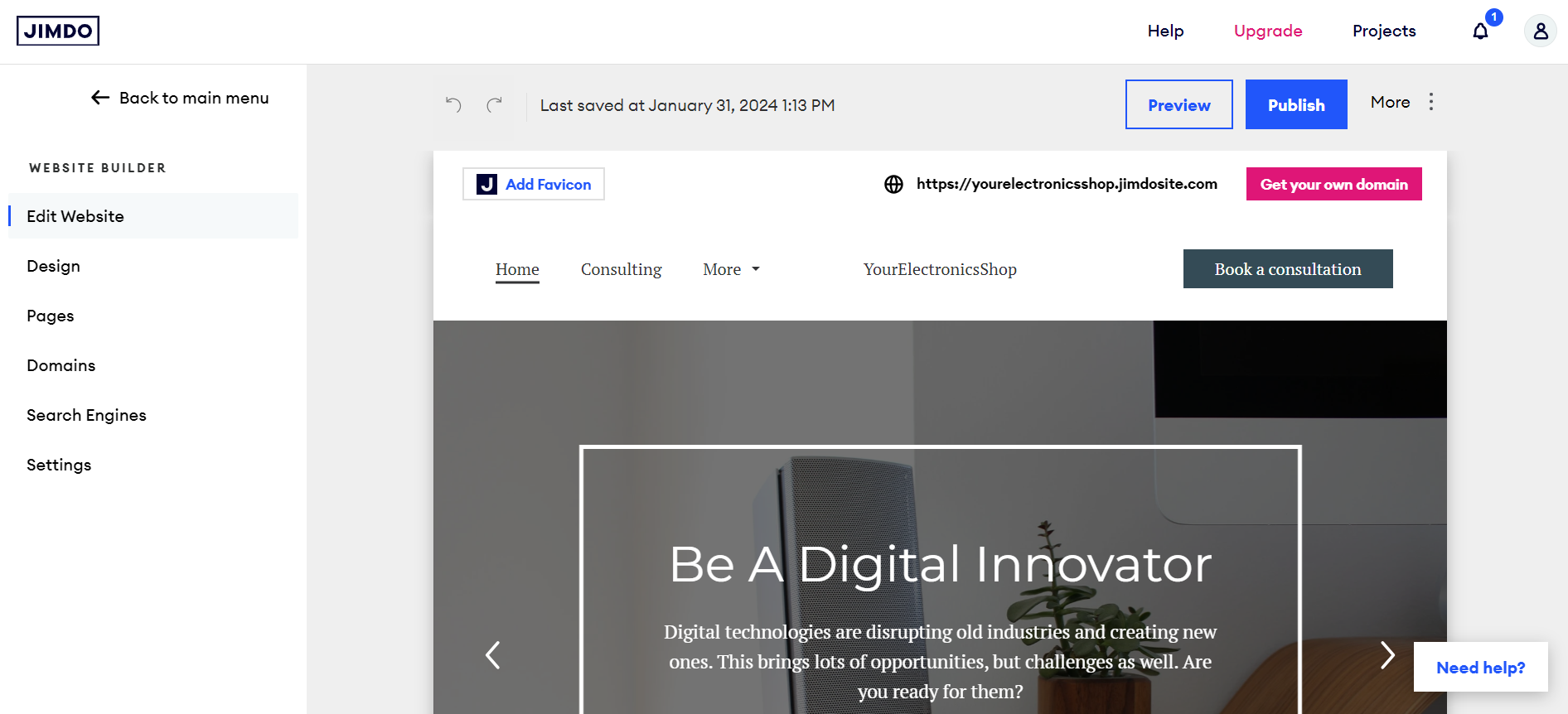
Zoho Sites, scoring 7.5, is a user-friendly website builder that enables both businesses and individuals to create professional, responsive websites without coding skills, through its drag-and-drop interface. Integrated within the Zoho ecosystem, it offers customizable templates, SEO tools, social media integration, and ecommerce features, along with connectivity to other Zoho applications for enhanced functionality.
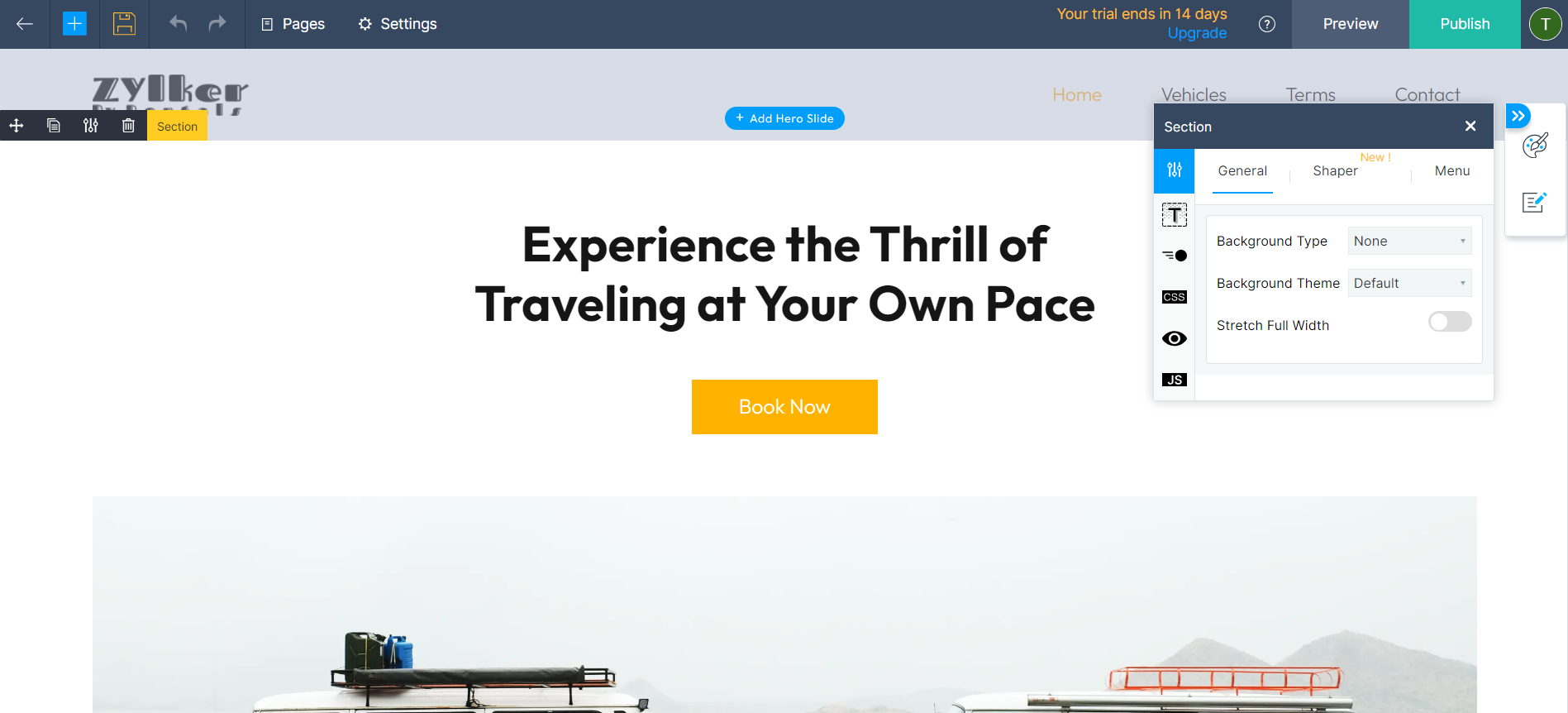
Mobile editor/app
 8.0
8.0
 5.5
5.5
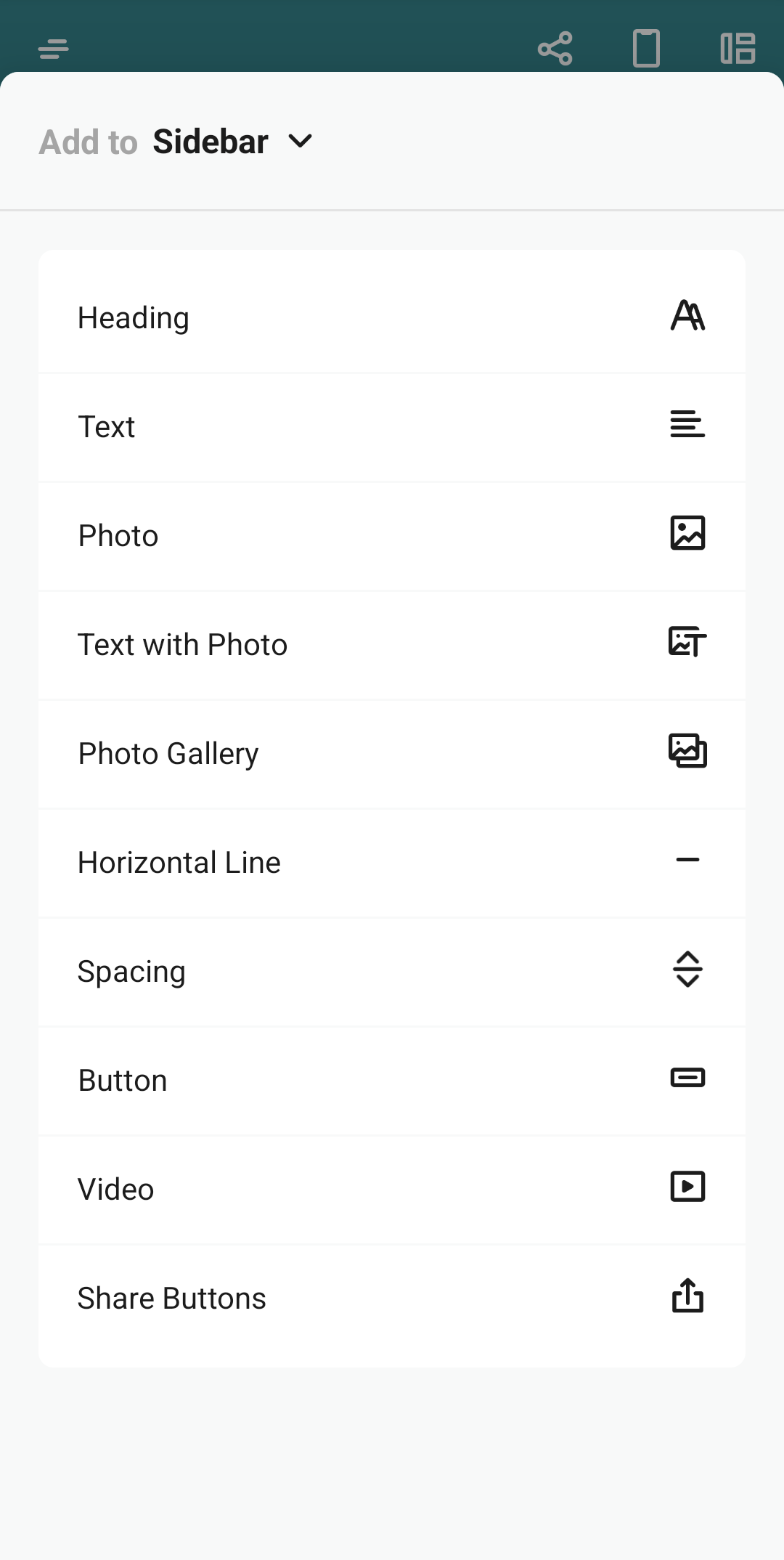
🏆
Winner: Jimdo
. Both Jimdo and Zoho Sites offer mobile-friendly website building, but they differ in their mobile editing capabilities. Jimdo provides a mobile editor app, allowing users to create and manage their websites directly from their smartphones or tablets. This app offers a convenient way to edit and update your site on the go, including adding or modifying content, adjusting design elements, and managing your online store.
On the other hand, Zoho Sites currently does not have a dedicated website editor app. You can edit the visual aspects of the mobile version of your website, such as font size, color, background, and shadow, but you cannot change the content through the mobile interface.
In summary, Jimdo receives a higher rating due to its dedicated mobile app that allows for comprehensive website editing on the go, while Zoho Sites lacks a mobile editor app, limiting its mobile editing capabilities.
Product testing options
Product Testing OptionsAssesses the options for trying out platform features before commitment.Score Components:
- Trial quality (40%): Extent and usefulness of the trial or free version.
- Feature accessibility (30%): How many features are available to test.
- Trial duration (20%): Length of the trial period.
- Ease of transition (10%): Smoothness of moving from trial to paid plans.
 6.4
6.4
 8.8
8.8
Overall Result
:
Zoho Sites Wins
. Zoho Sites scores 8.8, significantly higher than Jimdo’s 6.4. Zoho Sites offers a 15-day free trial with access to all features of each plan, providing a comprehensive testing experience. Jimdo, on the other hand, allows exploration of basic features with the free plan, and more advanced options can be tested by subscribing to any of the paid plans, with a 14-day money-back guarantee.

|
|
|
|---|---|---|
|
Free Plan |
Yes | Yes |
|
Trial Duration |
No (14-day money-back guarantee) |
15 days |
|
Testing Premium Features |
Basic features with free plan, advanced options with paid plans |
All features of each plan during free trial |
Price
PriceLooks at the cost-effectiveness and value for money of each platform.Score Components:
- Plan value (40%): What each pricing tier offers.
- Transparency and clarity (30%): Clearness of pricing structures.
- Flexibility of plans (20%): Range of options to suit different budgets.
- Hidden costs (10%): Additional expenses not included in the plan.
 7.5
7.5
 8.6
8.6
Zoho Sites offers a better price score compared to Jimdo, indicating more value for the price.
While Jimdo does not offer an enterprise plan, Zoho Sites provides options suitable for enterprise needs through their Agency Plan and add-on packs.

|
|
|
|---|---|---|
|
Free |
Play ($0/month): Basic, entry-level plan offering limited features, ideal for testing Jimdo’s capabilities. Includes 500MB storage and up to 5 website pages. Limited ecommerce functionality. |
No offering at this amount. |
|
$0-$10 |
Start ($9/month): Aimed at small projects or businesses just starting out. Provides 5GB of storage and up to 10 website pages, along with SEO tools for online visibility. Not directly focused on ecommerce. Value for price: 6.0 |
Starter ($8.00/month): Offers basic features suitable for small websites, including 5 pages, 500MB storage, 10GB bandwidth/month, SSL hosting, domain connection, ad-free experience, and more. Ideal for personal blogs or small business websites. Value for price: 6.5 |
|
$10-$15 |
Grow ($15/month): Targets growing businesses needing more space and features. Offers more flexibility but still lacks dedicated ecommerce capabilities compared to the Business plan. Provides 20GB bandwidth with up to 50 website pages. Value for price: 7.0 |
No offering at this amount. |
|
$15-$25 |
Grow ($15/month): Targets growing businesses needing more space and features. Offers more flexibility but still lacks dedicated ecommerce capabilities compared to the Business plan. Provides 20GB bandwidth with up to 50 website pages. Value for price: 7.0 |
No offering at this amount. |
|
$30+ |
Business ($19/month): Designed for small to medium-sized online stores, offering ecommerce features without transaction fees. Includes selling on Facebook and Instagram, and various payment options. And up to 50 website pages. Value for price: 8.0 |
Pro ($23.00/month): Upgrades significantly on the Starter plan, offering 50 pages, 100GB storage, unmetered bandwidth, 50 forms, and advanced features like social share button, audio player, comment box, scheduled blog post, and dynamic content. Best suited for professional sites that require more resources and functionalities. Value for price: 8.0 |
location. As a result in rare cases the prices displayed here can differ from the ones you see on their
websites.
Hosting quality
Hosting
qualityExamines the reliability and performance of the hosting solutions.Score Components:
- Uptime (40%): Consistency and reliability of website availability.
- Speed (30%): Loading times and performance.
- Bandwidth and storage (20%): Sufficiency of resources provided.
- Data centers (10%): Quality and distribution of hosting infrastructure.
 6.7
6.7
 8.0
8.0
Winner: Zoho Sites
. Zoho Sites offers a more reliable hosting service with a 99.9% uptime guarantee and a network of 12 global data centers. It also provides scalable hosting solutions with varying storage and bandwidth options to cater to different user needs. On the other hand, Jimdo offers a decent hosting service with a 99.5% uptime and a distributed network of secure data centers. However, it lacks an uptime guarantee and does not disclose the exact locations of its data centers.

|
|
|
|---|---|---|
|
Do they offer hosting? |
Yes, included in all of their plans |
Yes, included in all of their plans |
|
Data Centers: |
Not publicly disclosed |
12 Globally: Canada(Montreal and Toronto), US(Quincy and Dallas), India(Mumbai and Chennai), Australia(Sydney and Melbourne), China(Beijing and Shanghai), Japan(Tokyo and Osaka) |
|
Type of hosting: |
Shared Hosting, Cloud Hosting, Managed Hosting |
Managed Hosting |
|
Uptime: |
99.5% |
99.9% |
|
Uptime Guarantee: |
No |
Yes, 99.9% |
Website Speed Optimization
Website Speed OptimizationEvaluates optimization of website loading timesScore Components:
- PageSpeed Score (30%): Google’s score indicating performance optimization.
- Loading Time (30%): The average time until a website is fully interactive.
- Mobile Optimization (15%): Optimization effectiveness for mobile devices.
- Resource Optimization (15%): Optimizing images, scripts, and other heavy resources.
- CDN Usage (10%): Use of CDN to enhance speed across geolocations.
 7.6
7.6
 7.1
7.1
🏆 Winner: Jimdo
Both Jimdo and Zoho Sites prioritize website performance and page speed, but Jimdo edges out Zoho Sites with a slightly higher website speed optimization score.

|
|
|
|---|---|---|
|
Focus |
Content Optimization, CDN |
Regular testing and updates |
|
Performance Tools |
Google Lighthouse, PageSpeed Insights |
Google PageSpeed Insights Integration |
|
Key Strategies |
Content Optimization, CDN, Image optimization, Caching, Mobile Responsive design |
Regularly testing and implementing updates, Optimized code and libraries, Cache balancing |
|
Load Times |
Varies widely, dependent on optimization |
Below 2-5 seconds average |
|
Page Speed Scores Range |
Scores vary; influenced by plugins, images |
70-80/100 average |
|
Core Web Vitals Improvement |
Optimizing LCP, Enhancing FID, Improving CLS |
Implementing various performance optimization techniques |
Jimdo’s approach to enhancing site speed includes content optimization, use of a Content Delivery Network (CDN), image optimization, caching, and mobile responsive design. These strategies, combined with a focus on optimizing Largest Contentful Paint (LCP), enhancing First Input Delay (FID), and improving Cumulative Layout Shift (CLS), give Jimdo a slight edge in website speed optimization.
On the other hand, Zoho Sites focuses on regularly testing and implementing updates, optimized code and libraries, and cache balancing. While these strategies have resulted in average load times of below 2-5 seconds and average PageSpeed scores of 70-80/100, Zoho Sites falls slightly behind Jimdo in terms of overall website speed optimization.
Get a head start on website creation with AI
Create a custom website tailored to your business needs 10X faster with 10Web AI Website Builder!
Plugins and integrations
Plugins and integrationsMeasures the range and effectiveness of additional plugins and integrations.Score Components:
- Variety of options (40%): Range of available add-ons.
- Integration smoothness (30%): Ease of integrating plugins into the site.
- Quality of plugins (20%): Functionality and reliability of the options.
- Custom integration capabilities (10%): Support for custom or third-party integrations.
 7.4
7.4
 7.3
7.3
🏆 Winner: Jimdo.
With a score of 7.4, Jimdo slightly edges out Zoho Sites, which scores 7.3. Jimdo offers a range of plugins and extensions, with major providers being POWr and Elfsight, offering 50+ and 70+ free plugins respectively. These plugins cover various functions and enhance website functionality catering to diverse business and marketing needs.
On the other hand, Zoho Sites offers a diverse range of plugins and extensions spanning various categories like marketing, design, social media, SEO, payments, and more. However, instead of a traditional marketplace, Zoho Sites integrates many extensions into their paid plans, providing users with access to more features as they upgrade.
In terms of what can be extended, both platforms offer diverse enhancements for websites, including social media integration, ecommerce features, form builders, SEO tools, visual enhancements, marketing elements, customer reviews, event management, location tools, and various other functionalities.
When it comes to top integrations, Jimdo offers various integration options to enhance website functionality through Jimdo Smart Apps, access to over 70 customizable widgets from Elfsight, and incorporation of third-party tools for tasks like live chat and PDF conversion. Zoho Sites, on the other hand, integrates with a wide range of Zoho apps and third-party services to enhance website functionality and improve visitor engagement.
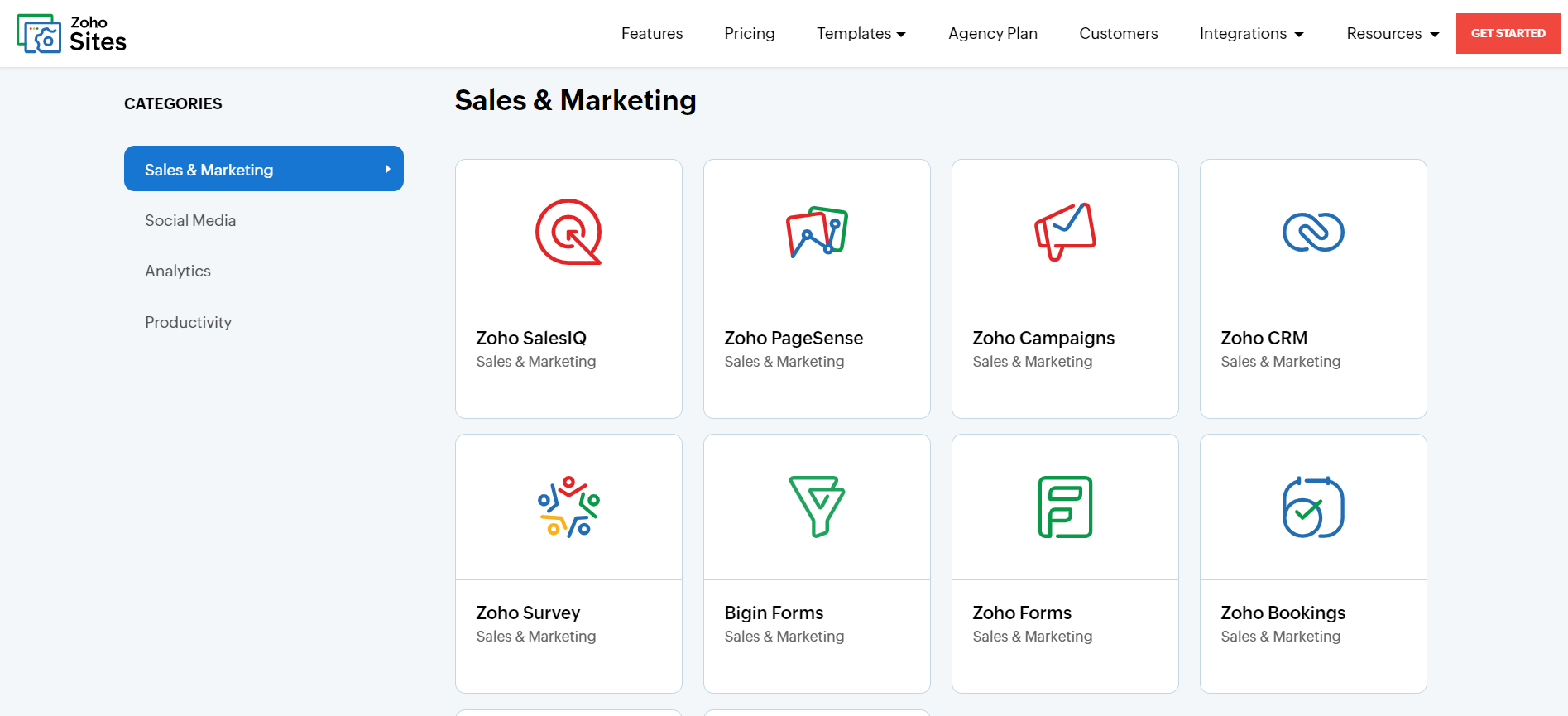
Marketing Features
Design FunctionalitiesRepresents how well each platform allows for creative design and customization of websites.Score Components:
- Template Variety (30%): Range and quality of design templates.
- Customization (30%): Flexibility and options for design alterations.
- User Interface (20%): Ease and intuitiveness of the design process.
- Responsiveness (10%): Adaptability to different devices and screen sizes.
- Innovation (10%): Unique design features and tools.
 7.2
7.2
 7.6
7.6
🏆
Overall Winner: Zoho Sites
. Zoho Sites edges out Jimdo with a slightly higher score, indicating a more comprehensive set of marketing features. Both platforms offer SEO tools, email marketing, blogging, social media integration, analytics and reporting, and ads and promotions. However, Zoho Sites’ integration with its own suite of business apps gives it an edge.

|
|
|
|---|---|---|
|
SEO Tools |
|
|
|
Email Marketing |
|
|
|
Blogging |
|
|
|
Social Media Integration |
Integration features for various social media platforms |
Extensive management across platforms like Twitter and Facebook |
|
Analytics and Reporting |
Integrated analytics for monitoring website traffic |
Traffic analytics and supports Google Analytics integration for detailed insights |
|
Ads and Promotions |
Tools and features for promotions, but detailed ad management may require external services |
Integrated with Zoho Marketing Automation for managing ads and promotions |
Customer Support
Customer supportEvaluates the quality and availability of support options.Score Components:
- Response time (40%): Speed of support responses.
- Support quality (30%): Effectiveness and helpfulness of the support.
- Availability (20%): Range of support channels (phone, chat, email).
- Resource richness (10%): Quality of self-help and educational materials.
 6.8
6.8
 8.3
8.3
🏆 Winner: Zoho Sites
. In the comparison of Jimdo vs Zoho Sites, Zoho Sites takes the lead with a higher customer support score of 8.3. Zoho Sites offers 24/7 support through live chat, email, and phone, ensuring that users can get assistance at any time. Additionally, Zoho Sites provides a comprehensive knowledge base and community forum, making it easier for users to find answers to common questions and interact with other users.
Jimdo, on the other hand, offers various support channels including email, a call center, and social media support. However, it lacks live chat support, which can be a significant drawback for users needing immediate assistance. Jimdo’s support options may also vary based on the user’s plan, so it’s important to check their official support pages for the most accurate information. Despite these offerings, Jimdo’s customer support score of 6.8 indicates that there is room for improvement compared to Zoho Sites.
Security
SecurityLooks at the platforms’ security measures and data protection.Score Components:
- Data protection (40%): Safeguards for user and customer data.
- SSL and encryption (30%): Implementation of secure connections.
- Compliance (20%): Adherence to industry security standards.
- Regular updates (10%): Frequency of security updates and patches.
 8.3
8.3
 8.1
8.1
🏆
Winner: Jimdo
. Jimdo’s commitment to security is evident in its comprehensive measures, including a strong firewall, DDoS protection, HTTPS encryption for all traffic, and SSL certificates for domains. The company also ensures GDPR compliance and maintains a dedicated team for legal and information security.
Although it may not offer the same level of extensive security measures and GDPR compliance tools as Jimdo, Zoho Sites provides a secure environment for website creation and management, using SSL encryption to protect data transmission and offering two-factor authentication for added security.
AI Capabilities
AI capabilitiesMeasures the effectiveness of AI-driven features and tools.Score Components:
- Automation efficiency (40%): Impact of AI on streamlining processes.
- Personalization (30%): AI-driven customization for users or customers.
- AI-Assisted design (20%): Role of AI in website design and functionality.
- Data analysis (10%): Use of AI in interpreting user data and analytics.
 6.0
6.0
 7.5
7.5

|
|
|
|---|---|---|
|
Personalized Design |
Jimdo’s AI offers mobile-friendly designs and custom logo creation |
|
|
SEO Optimization |
|
|
|
Customer Behavior Analysis |
|
Zoho’s AI delivers unique and targeted product recommendations based on customer interactions |
|
Sales Predictions |
|
Zoho’s AI assistant Zia provides sales predictions |
|
Inventory Management |
Jimdo’s AI provides inventory management insights |
|
|
Content Generation |
|
Zoho’s AI content assistant Zia helps in creating engaging and conversion-optimized content |
🏆 Winner: Zoho Sites
. Zoho Sites, with a score of 7.5, offers a more comprehensive set of AI capabilities, particularly in the areas of customer behavior analysis, sales predictions, and content generation. Zoho’s AI assistant Zia is a powerful tool that enhances various aspects of the website building and management process.
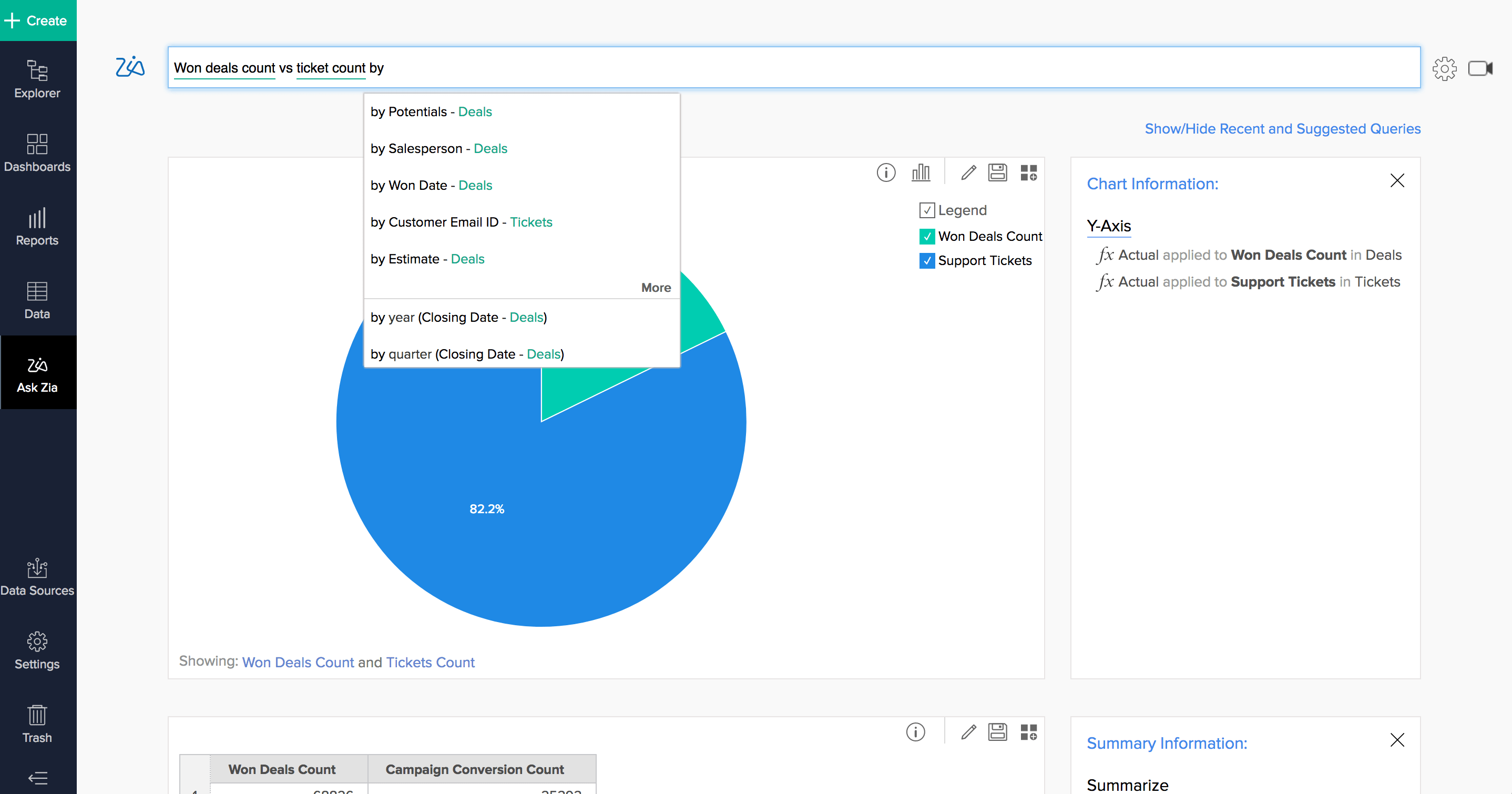
Jimdo, with a score of 6.0, offers AI capabilities mainly in the area of personalized design. Its AI-driven website creation process simplifies the site-building journey, making it a good choice for users seeking a hassle-free way to establish a professional online presence. However, it lacks in areas such as SEO optimization, customer behavior analysis, and content generation.

User Management
User ManagementAssesses the platforms’ capabilities in managing user roles, permissions, and accessibility.Score Components:
- Role Customization (40%): Flexibility in creating and defining user roles and
permissions. - Ease of Management (30%): User interface and tools for managing users.
- Access Control (20%): Effectiveness of access control measures for different user
levels. - Scalability (10%): Ability to manage a growing number of users efficiently.
 5.8
5.8
 7.3
7.3
🏆 Winner: Zoho Sites
. Both Jimdo and Zoho Sites offer different levels of user management depending on the chosen plan.
- Jimdo’s Free, Start, and Basic Shop Plans allow website management by a single owner. The Grow Shop Plan permits two editors, including the account owner and one collaborator. The Business Plan extends collaboration to five editors, consisting of the account owner and four collaborators. The Unlimited Plan provides unlimited editors, fostering a collaborative team environment. The VIP Plan, designed for online stores, does not specify a limit on editors for websites.
- The number of users who can edit a Zoho Sites website and their access levels depend on the chosen plan. The Free Plan allows only the owner to edit, while paid plans like Pro, Business, and Enterprise offer access for up to 10, 25, and 50 users respectively. Zoho Sites provides four access levels: Admin, with full editing rights and user management; Contributor, who can edit content and create pages but not manage collaborators; and Author, limited to editing text content without access to settings or user management.
Jimdo User Roles and Access Levels:
| Plan | Number of Editors | Access Levels |
|---|---|---|
| Free, Start, Basic Shop | 1 (Owner) | Full control over website |
| Grow Shop | 2 (Owner + 1 Collaborator) | Full control for owner, limited access for collaborator |
| Business | 5 (Owner + 4 Collaborators) | Full control for owner, limited access for collaborators |
| Unlimited | Unlimited | Full control for owner, limited access for collaborators |
| VIP | Not specified | Full control for owner, limited access for collaborators |
Zoho Sites User Roles and Access Levels:
| Plan | Number of Users | Access Levels |
|---|---|---|
| Free | 1 (Owner) | Full control over website |
| Pro | Up to 10 | Admin, Contributor, Author |
| Business | Up to 25 | Admin, Contributor, Author |
| Enterprise | Up to 50 | Admin, Contributor, Author |
Additional Features

|
|
|
|---|---|---|
|
SSL Certificate |
|
|
|
Custom Domain |
|
|
|
Free Custom Domain Included |
|
|
|
International Domains |
|
|
|
Mobile Responsive |
|
|
|
Page Speed |
|
|
|
Website Builder Mobile App |
|
|
|
Convert a Website To An App |
|
|
|
Website Analytics |
|
|
|
Multilingual Sites |
|
|
|
Multiple Users |
|
|
User Feedback
Jimdo, a website builder platform, receives mixed reviews from users. Positive feedback highlights its ease of use, no-code editor, and quick website development for basic sites. However, criticisms include outdated design, limited templates, and concerns about pricing transparency. Some users appreciate it for simple projects, while others find it lacking for more complex websites. Common issues include restricted SEO in the free tier, support limitations, and late responses. The overall impression suggests Jimdo may suit beginners but could be less ideal for those seeking advanced features or modern designs.
Zoho Sites receives mixed reviews, with users praising its user-friendly interface, extensive template library, and seamless integration with other Zoho products, which simplifies website development and management for small businesses. However, some users express dissatisfaction with its limited design flexibility and the inability to create custom features. Overall, Zoho Sites addresses the need for cost-effective website solutions, particularly for those without coding knowledge, offering a one-stop-shop for building and managing websites with varying degrees of customization and integration with other business tools.
The making of this blog
We followed a clear, step-by-step process to write and research this article.
FAQ
Which platform is better for beginners, Jimdo or Zoho Sites?
Can I use both Jimdo and Zoho Sites for ecommerce?
How do Jimdo and Zoho Sites differ in terms of design flexibility and customization?
What are the major differences in pricing between Jimdo and Zoho Sites?
Which platform offers better customer support, Jimdo or Zoho Sites?
Are Jimdo and Zoho Sites secure platforms for building websites?
Which platform has better AI capabilities, Jimdo or Zoho Sites?










